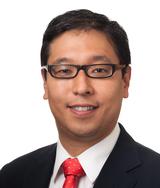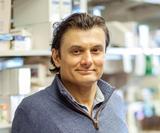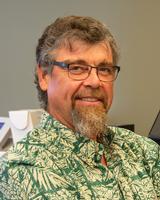Cutaneous Biology Mentors
Strong mentoring is fundamental to producing independent investigators. Each trainee has a laboratory mentor (a T32 Primary Mentor) and three to four other faculty (a T32 Primary Mentor or Resource Faculty) who serve as the mentor team. We also have a unique "Road to Translational Research" mentoring team of dermatology faculty who provide guidance in the translational aspects of research.
Mentored laboratory training is the most important aspect of the program and comprises 80 percent or more effort, depending on the trainee's previous background and experience. Each fellow is assigned to a faculty member who heads his/her laboratory and provides day-to-day guidance. The mentor and fellow formulate hypotheses, approaches to address them, interpret data, write papers and grants and work on presentations. The training period in most cases is two years, although trainees may remain in the preceptor's laboratory for longer periods to gain independence.
Primary Mentors
Primary mentors meet one-on-one with trainees frequently to discuss progress and provide the trainee with the opportunity to discuss career progress as well as their Individual Development Plan (IDP).
Choi, Jaehyuk
Adjunct Professor, Dermatology (Medical Dermatology)
Lavker, Robert M
Professor Emeritus, Dermatology
Paller, Amy S
Professor, Dermatology, Pediatrics (Dermatology)
Budunova, Irina V
Professor, Dermatology, Urology
Chandel, Navdeep S
Professor, Medicine (Pulmonary and Critical Care), Biochemistry and Molecular Genetics
Green, Kathleen J
Professor, Pathology (Experimental Pathology), Dermatology
Hauser, Alan R
Professor, Microbiology-Immunology, Medicine (Infectious Diseases)
Hope, Thomas J
Professor, Cell and Developmental Biology, Obstetrics and Gynecology
Laimins, Laimonis A
Professor, Microbiology-Immunology
Longnecker, Richard M
Professor, Microbiology-Immunology
Meade, Thomas J
Professor, Radiology
Professor, Weinberg College of Arts and Sciences
Miller, Stephen D
Professor Emeritus, Microbiology-Immunology
Mirkin, Chad A
Professor, Medicine (Hematology and Oncology)
Professor, Weinberg College of Arts and Sciences
Rogers, John A
Professor, Dermatology, Neurological Surgery
Professor, McCormick School of Engineering
Schleimer, Robert P
Professor Emeritus, Medicine (Allergy and Immunology)
Troyanovsky, Sergey M
Professor, Dermatology, Cell and Developmental Biology












